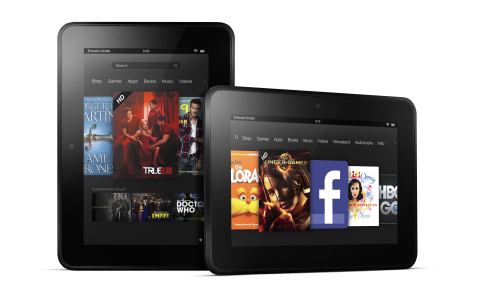Yesterday’s article about AT&T’s policies towards FaceTime over cellular caused a bit of discussion on the Facebook feed. One hearing-impaired reader didn’t feel AT&T’s choosing to block the feature for all but a select few was such a big issue. After all, hearing impaired users can use other phones, other networks, or other apps. He did, however, bring a larger issue to my attention.
It’s not something those of us without auditory issues think of, but closed captioning/subtitling is a huge issue for people with hearing loss. In this digital day and age, it’s heartening to find out that many online streaming sites such as HBO GO, Netflix, and Hulu offer subtitles on most of their content. Apple’s iTunes store and Google Play both offer them as well, which means your iPad and assorted Android tablets have closed captioning built right in. However, one major player offers no such assistance, as our reader, 29-year-old network admin Aaron Young pointed out:
Amazon Prime is $79, for which you get several things, 2-day delivery, once a month free e-books (you don’t even need a kindle) & finally a selection of Amazon Prime Videos. I can’t opt out of the videos, hence it’s to me a deaf tax, since I have to pay for it even though I can’t use it.
We live in such an inclusive era that even some theaters are adding closed captioning, so this is a surprising omission on Amazon’s part. Considering the amount of Amazon-exclusive shows and movies, that’s quite a bit of content that hearing-impaired persons simply can’t access. It also makes the Kindle HD a bit of a no-fly zone for those same users. Unlike with the iPhone and AT&T, those users can’t simply use another carrier. We’re talking about an estimated 35 million potential clients who aren’t going to get hooked into Amazon’s goods and services.
What’s sign language for “I’d like a Nexus 7, please”?


I agree that it is unfortunate, but I don’t see it as a “deaf tax”, as $79 has been the price of the service since its inception, when it was just for the shipping perks. I’ve seen everything added since as added value/further enticement.
yes & no, its value that i can’t take advantage of. and pretty sure that it was part of prime from the start could be wrong tho) secondly for those exclusive streaming item that amazon has my only recourse now is to get physical media or hope its playing on tv. physical media with the exception of netflix and to some extent blockbuster. is hard to come by without purchasing. (those redbox type devices don’t have a large enough selection to cover these issues.)
there is a class action lawsuit going on with netflix for its so called “deaf tax”) that affected the hearing impaired community for the time they bundled streaming with their disk service
you can’t even use the netflix service to rent one item, you have to get a subscription ( i’m not sure about blockbuster but i think its the case as well)
this is right on point
another point i’d make is that closed captions/subtitles is used by more than just the hearing impaired community. people who use english as a second language often use it when learning english. people watching in a noisy enviroment take advantage some times if headphones are not an option. there are computers that don’t have loud enough audio that warrants caption usage too.
amazon should already have the captions since most shows are required by the FCC to be caption if they are intended to be broadcasted) heck even tv made for the us market above a certain size are required to have built in caption decoders.
I’m late on this. Yeah. I got Amazon Prime largely for tho videos, but not one thing had captions on it, so I cancelled right away. Netflix used to be just as bad, I quit them because of it, but had since seen they fixed the problaem, for the most part.
Just as bad is when these services offer closed captions/subtitled but have no way of filtering searches and not much of a way of a viual cue to let people know a program has captions.
I would like youtube and such to have a better solution than their beta solution.